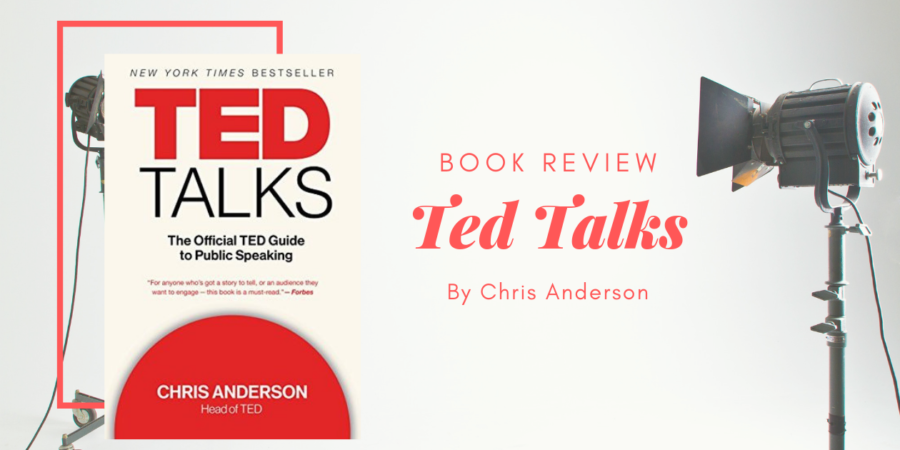About six years ago, I read a book on TED Talks called – How to Deliver a TED Talk. Needless to say, I’ve forgotten most of that, which is why I thought it would be good to get a book on TED talks. I’m definitely not a naturally good public speaker, but I do have to stand in front of groups of people to talk every now and then and I figured this would be useful.
Written by the current head of TED, TED Talks brings together the collective wisdom of the best TED speakers to give you a toolkit on how to give a great speech. Anderson emphasises that there is no one right way to deliver a talk and that the reader should be taking away the tips that are most applicable to them. The book is divided into five parts:
- Foundation: This looks at the importance of the idea in a talk, talk styles to avoid, and how to think of your throughline.
- Talk Tools: This section is on how to structure and deliver your talk. How do you use stories, how do you explain tough concepts (hint: don’t talk down to the audience, but don’t assume that they’ll understand industry jargon), how to use reason, and more.
- Preparation Process: I thought this section was pretty interesting. The book walks the reader through best practices for slides, whether you should memorise a script, and how to start and end your talk.
- On Stage: This section deals with the actual talk – what to wear, whether you need a lectern, what to do with nerves, etc. It seems like it would be very useful to read before a talk.
- Reflection: This is less on strategy and more on the importance on public speaking, both now and for the future.
The nice thing about this being the official TED guide is that the book doesn’t just look at the best talks – it also gives us examples of talks that did not go well and explains why they didn’t go well. It can be hard to imitate success, but it’s comparatively easier to avoid failure, so examples of unsuccessful talks were very illuminating.
Apart from Anderson, the book also has lots of contributors from the TED team (the section on powerpoint, for example) and different TED speakers, such as Ken Robinson, Amanda Palmer, and much more. This isn’t just the perspective of one person, it’s pretty clear that this book contains the collective wisdom of many people.
I don’t have a public speaking opportunity coming up, so I can’t put any of these tips into practice immediately. But they do seem helpful and I intend to refer to this book the next time I need to prepare a speech.

I think it sounds especially interesting that this looked into talks that didn’t go as well. It’s great that this is helpful for people interested in public speaking as well.
It almost made me wish I had a public speaking event going on because I would have liked to try practicing what the book talked about :p